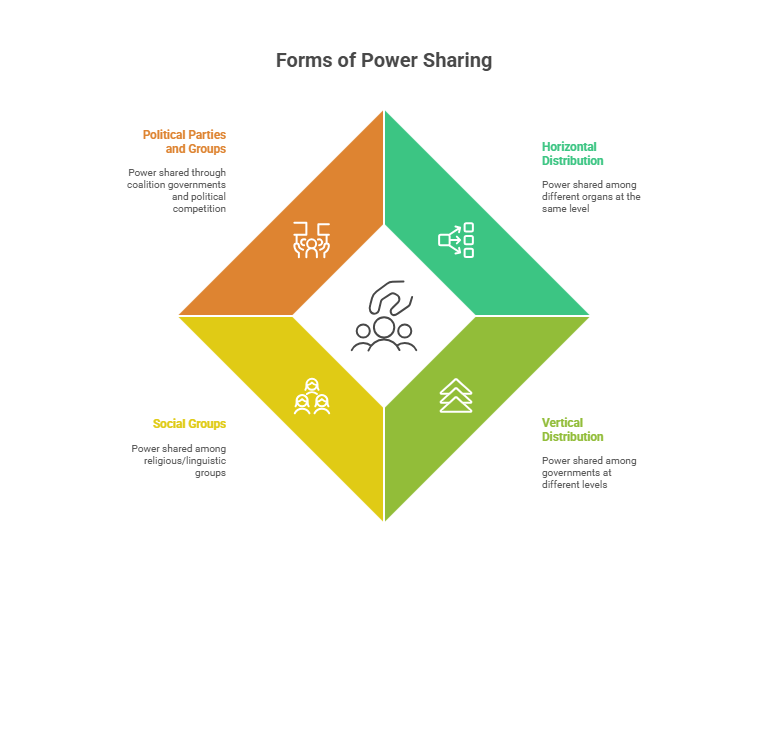Topic 5 -Forms of Power Sharing
Power sharing in modern democracies takes various forms to ensure inclusivity and balance.
- Horizontal Distribution: Power shared among different organs (legislature, executive, judiciary) at the same level, ensuring checks and balances (e.g., India’s judiciary checking executive actions).
- Vertical Distribution: Power shared among governments at different levels (federal, state, local), as in India’s Union and State Governments or Belgium’s federal system.
- Social Groups: Power shared among religious/linguistic groups, like Belgium’s community government or India’s reserved constituencies for weaker sections.
- Political Parties and Groups: Power shared through coalition governments, political competition, or influence by pressure groups (e.g., India’s coalition governments). A pressure group people who try to convince the government to make decisions in their favor. They don’t want to become the government — they just want to influence it.
